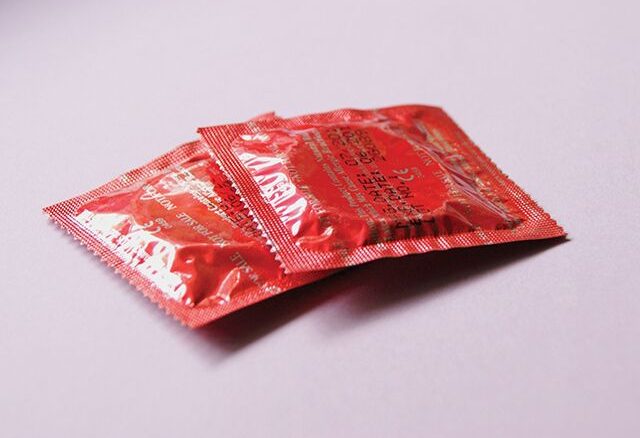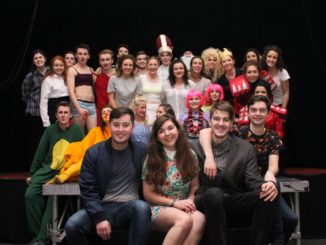
At age 15, Jack Cooley sat in a transition year sex education workshop and felt like a sexual pervert.
What if a question he asked made his peers realise he was gay? What if his family found out? The volunteer running the workshop had just said that while homosexual men and women said they had sex, they didn’t really. “Real sex”, she said, was between a man and a woman.
At age 11, his teacher had told the class that sometimes boys had “crushes” on boys but made it sound like once his hormones calmed down, those feelings would disappear.
“At first, this relieved me because I thought my own feelings would go away with time, but then made me become more panicked as I got older and my feelings didn’t go anywhere,” Cooley, who is now 20 years old and studying in Queen’s University Belfast, said.
He says that the lack of information given to children and adolescents about LGBTQ+ issues during his sex education added to the sense of isolation he felt at the time.
“I felt I was doomed to live my life in secrecy… It just made me feel like an “other” who only really existed outside of regular society and would never understand what it is to be a real person,” he said.
Unfortunately, Cooley’s experience is not an isolated one.
Sex education was officially introduced to Irish schools in 1999 and hasn’t been reviewed since.
Caroline West, a doctoral Scholar in Sexual Studies at DCU says that the government’s failure to update Relationships and Sex Education is a result of a culture sexual repression.
“Sex education in Ireland is lacking in adopting a comprehensive approach that empowers people to make decisions about sex when they are ready to have sex. A comprehensive approach provides information on contraception, consent, pleasure, and communication skills,” she said.
“It has been 20 years since Ireland introduced RSE to the Irish curriculum. I think a review has not been a priority for governments as anything to do with sex was generally avoided. We have had a culture of shame and stigma about sex and sexuality in Ireland for a long time.”
“But Ireland has changed socially and culturally and there is more openness now to discuss these topics in a calm, informed way,” she added
A review conducted by the government in April of this year found that Ireland’s current sex education was largely abstinence-based, with much of it focusing on the risk factors involved with sexual activity and the biological aspect of reproduction.
According to the review, students, like Cooley, felt that they received little information about LGBT issues, information about unhealthy relationships, or consent.
The review was based off answers from more than 5,000 students, teachers and parents, along with in-depth consultations with almost 25 schools.
Following the publication of this report, the Education Committee said that consent was only “touched upon” in the current relationship and sex education, and recommended that it become an integral part of the RSE curriculum.
RSE programmes also seem to fail some girls in regards to educating them about menstruation. According to a study conducted by Plan International Ireland, 15 per cent of girls didn’t know what was happening when they first got their period. An additional 43 per cent said they had no idea what to do when it started.
Abbey Downing (20), who attended both primary and secondary school in Skerries, said that by the time she was ever taught about menstruation in school, she had already had her first period.
“By the time we got that talk majority of girls in the class had already gotten their periods and were just like ‘we know what it is’,” she said.
As a gay woman, she also feels let down by the lack of LGBTQ+ content in her SPHE class, saying: “It probably would have been a lot easier for me to understand what was happening in my mind and for the future, it would have been nice to know.”
However, efforts are being made to reform this. The Provision of Objective Sex Education Bill was published in April 2018 and was sponsored by Solidarity-People Before Profit TDs Ruth Coppinger, Paul Murphy and Mick Barry. It is currently making its way through the Oireachtas and contains provisions for education on consent, gender, sexuality, termination of pregnancy and contraception.
If passed, the bill would amend the Education Act 1998 to ensure that the rights of students to receive factual and objective information on relationships and sexuality regardless of the school’s ethos. Under current legislation, schools are entitled to tweak the sex education programme according to their ethos because of laws which protect their characteristic spirit.
However, this bill is not guaranteed to become law. While the government has not opposed it so far, both Fine Gael and Fianna Fáil have expressed concern that enshrining curriculum requirements in legislation could limit changes to curriculum and teaching in the long-term.
The Provision of Objective Sex Education Bill recently attracted attention, when Neil O’Mahony, a Renua local election candidate in Galway City East claimed that children between 0-4 years old could be taught about masturbation if the bill became law.
O’Mahoney was proven to be mistaken and the sex education bill will not lead to children between the ages of 0-4 being taught about masturbation.
Reflecting on his sex education now Cooley, who is open with and proud of his homosexuality, says he’s simply angry.
“I and other queer kids could’ve avoided years of self-hatred and depression had the adults in our lives just been a bit more tolerant. It also breaks my heart to think that there are still kids in school today feeling like that.”
Sally Madden
Image Credit: Pixabay



